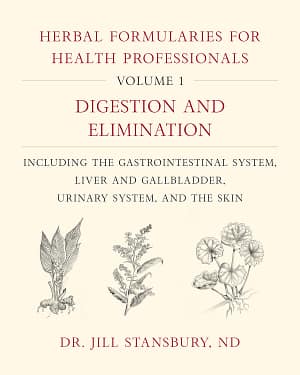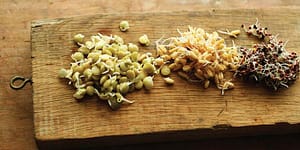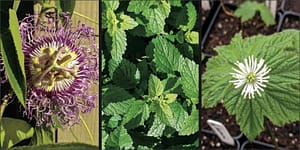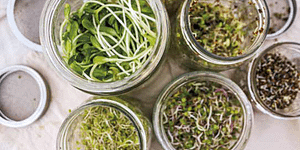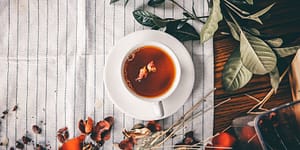The Art of Herbal Formulas: Asking the Right Questions

The presentations of illnesses can vary greatly across patients, requiring specific alterations to formulas. As Hippocrates said, “It is more important to know what kind of person has a disease than to know what kind of disease a person has.” Learning how to ask questions that will elicit relevant information is as much an art form as creating an herbal formal. Aim your questions to gather information in several categories. What follows here is a broad list of questions that can yield helpful information.
The following excerpt is from Herbal Formularies for Health Professionals (Volume 1), and has been adapted for the web.
Creating an effective and sophisticated herbal formula is somewhat of an art, and like all art, it is difficult to put into step-by-step directions; however, this is my attempt to do just that. Herbal Formularies for Health Professionals aims to explain how to create specific formulas for presentations rather than diagnoses—rather than offering a single formula or two for a general condition such as hypertension or irritable bowel syndrome, this text offers exacting formulations to best address the precise presentation of the person. I have personally seen many different kinds of hypertension, dyspepsia, cystitis, and other conditions that conventional medicine tends to treat with one across-the-board medication or therapy. My aim is to coach readers on how to create numerous finely tuned herbal options for treating the person, and not the diagnosis—a core tenet of natural medicine.

Hippocrates said, “It is more important to know what kind of person has a disease than to know what kind of disease a person has.” To know what sort of person has a disease requires careful listening and skilled and nuanced questioning in a safe and comfortable setting. Listen for underlying causes, for overarching emotional tone, for what a person is able to do for themselves (sleep more, exercise more, eat better, brew a daily tea), and for what they are resistant to (sleep more, exercise more, eat better, brew a daily tea). Address underlying causes and start where people show some interest and capacity. Cheerlead to instill enthusiasm if required, so that people become better educated and thereby better motivated to make important changes or adopt valuable healing practices. Giving the right medicine is only one aspect of doing healing work with a person; creating a sacred space that invites truth and sharing is key to getting to the point where you know what sort of person has a disease.
Healing also stems from understanding pain, suffering, challenges, and unique situations, from non- judgmental listening to the stories so often linked to our physical ailments. It comes from giving encouraging words and sympathy, congratulating and complementing people’s efforts and accomplishments, and giving people the tools, resources, and support to succeed. This kind of true caring and earnest effort to provide real support are among our best medicines.
 Asking the Right Questions
Asking the Right Questions
Learning how to ask questions that will elicit relevant information is as much an art form as creating an herbal formal. Aim your questions to gather information in several categories. What follows here is a broad, but not exhaustive, list of questions that can yield helpful information.
Etiology
How long has this been happening?
How did it begin?
How has it evolved over time?
What else was going on in your life at the time this began?
Have any other symptoms, complaints, problems accompanied this complaint?
What is your health history?
Any previous episodes? Related pathologies? Family members with this complaint?
What is the predominant emotion associated with this complaint? Did the complaint begin during a period of grief? Anxiety? Ambition?
Did the complaint begin following hard labor or an injury, stress, eating a new food, traveling out of the country, starting a new medication (and so on)?
Quality and Occurrence of the Complaint: “PQRST”
Provocation. Does anything seem to bring on the complaint? Does anything alleviate it? What makes the complaint better or worse?
Quality. What is the character of the complaint: burning, throbbing, dull, sharp, shooting, aching…?
Radiation. Does the pain travel? Does this symptom affect any other organ? Is this complaint associated with any other symptom?
Severity. On a scale of 1 to 10, how severe is this? Does it interfere with sleep, activities, work, sex, relationships, child rearing, creativity, and hobbies?
Time. Timing throughout the day, throughout the month (hormonal fluctuations?), throughout the year (seasonal allergies? seasonal affective disorder? Oriental or Native American concepts of seasons?). Timing may involve an association with eating food or going without eating, an association with anxiety/relaxation, an association with menstrual cycle, or an association to a certain environment or allergen exposure. Is the complaint any better or worse with sleep?
Concomitant Symptoms
Do you feel hot or cold when this occurs?
Is there lethargy or anxiety, heart palpitations, or weakness?
Does it occur during times of stress and activity, during sleep, or after prolonged sitting?
Is there fear or fatigue, mania or depression, weakness or restlessness (and so on)?
Is there a desire to be consoled or to be left alone?
Constitution and Energetic Considerations
Note the constitution by asking the right questions, and observe the person to get additional clues:
Complexion. Pale? Yellow? Cyanotic? Flushed? Haggard? Dry? Damp? Inflamed? Quick or slow to perspire? Oily or dry skin?
Pulse. Strong or weak? Fast or slow? The quality? The variability?
Tongue. Large or small?
Muscles. Well developed, overdeveloped, underdeveloped? Spastic, atrophic? Soothed by pressure and massage or aggravated by pressure or massage?
Senses. Hyperacute includes sensitivity to odors, noises, bright light; pain; racing thoughts. Hypoacute includes loss of taste, hearing, sensation; poor ability to concentrate, remember, respond.
Diet and Appetite. Hungry, anorexic? Can eat large quantities or tolerate only small amounts? Hypoglycemic symptoms? Unusual cravings for a particular flavor or food? Unusual aversion or aggravation by particular foods or flavors Are the symptoms better following meals, or between meals when stomach is empty? What is the general diet, nutrient intake, bowel habits, and quality of the stool?
Thirst. Large thirst versus small or no thirst? Thirst due to dry mouth? Thirst due to compulsion? Thirst for large gulps or thirst for small sips? Thirst for warm fluids or thirst for cold fluids?
Sex drive. High, low? Markedly cyclical?
Sleep. Requires more than 8 hours of sleep to feel rested, able to function with little sleep? Sleeps soundly all night, or wakes many times? Takes a long time to fall asleep, but then sleeps well, or falls asleep readily but wakes at a particular time unable to sleep further? Eating before bed disturbs or improves sleep? Restless during sleep or wakes with a jolt? Has nightmares or difficult dreams?
Recommended Reads
Recent Articles
Want to start your own medicinal herb garden? Passionflower, lemon balm, and goldenseal are great places to begin! These herbs are jam-packed with medicinal properties and easy to grow in a majority of climates.
Read MoreSprouts are easy to cultivate, mature quickly and pack a nutritional punch! You can make nutrient-rich sprouts from all kinds of edible seeds in your kitchen.
Read MoreSuffering from frequent headaches is miserable and immobilizing. If you haven’t had luck treating and preventing your headaches, skip the over-the-counter approach and prepare herbal formuals for migraines to use in the future! The following is an excerpt from Herbal Formularies for Health Professionals, Volume 4 by Jill Stansbury. It has been adapted for the…
Read More“It is more important to know what kind of person has a disease than to know what kind of disease a person has.” —Hippocrates Drawing on her decades of clinical experience and her extensive research, Dr. Jill Stansbury offers an unparalleled range of herbal formulas in her five-volume set, Herbal Formularies for Health Professionals. For each…
Read More
 Asking the Right Questions
Asking the Right Questions 
